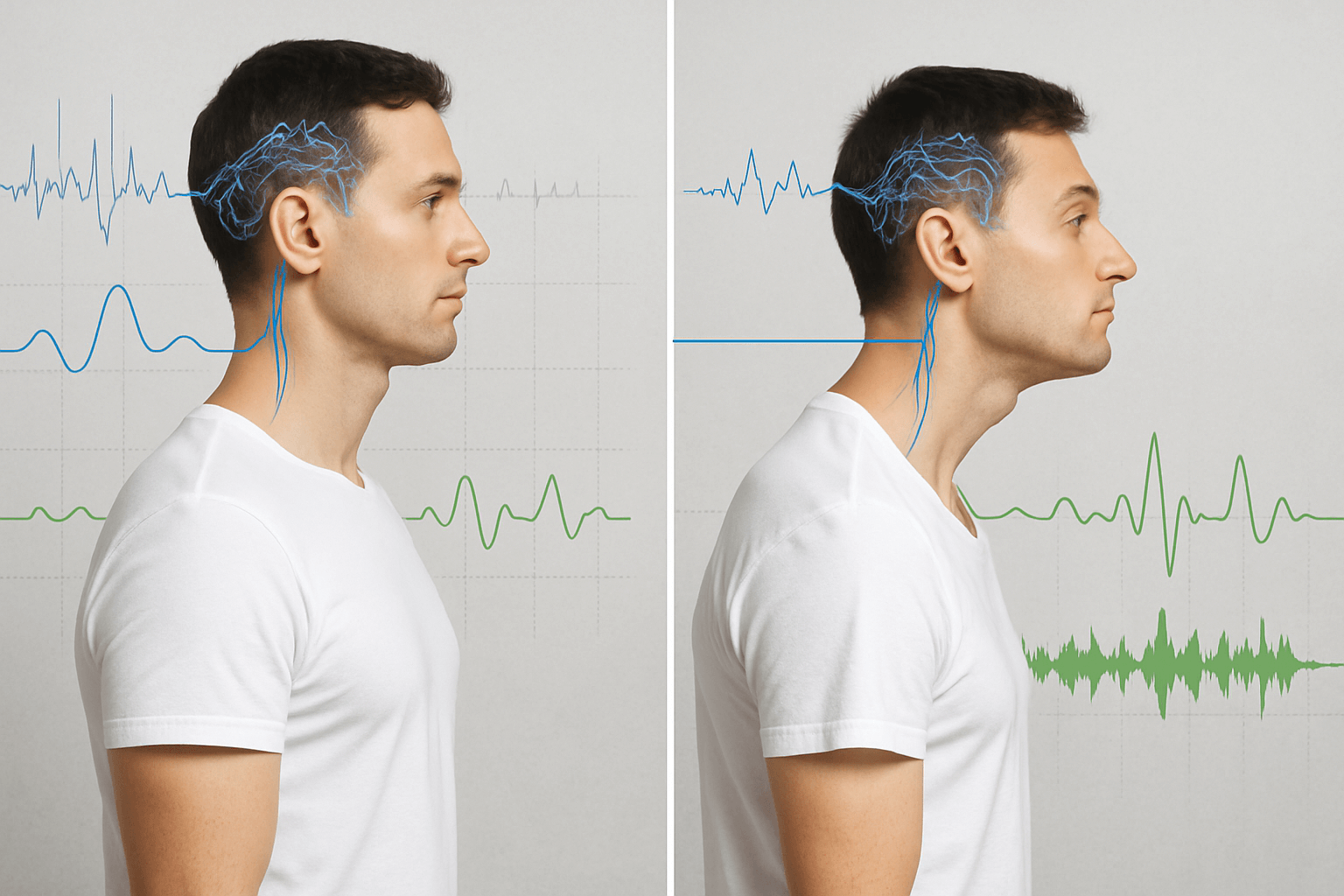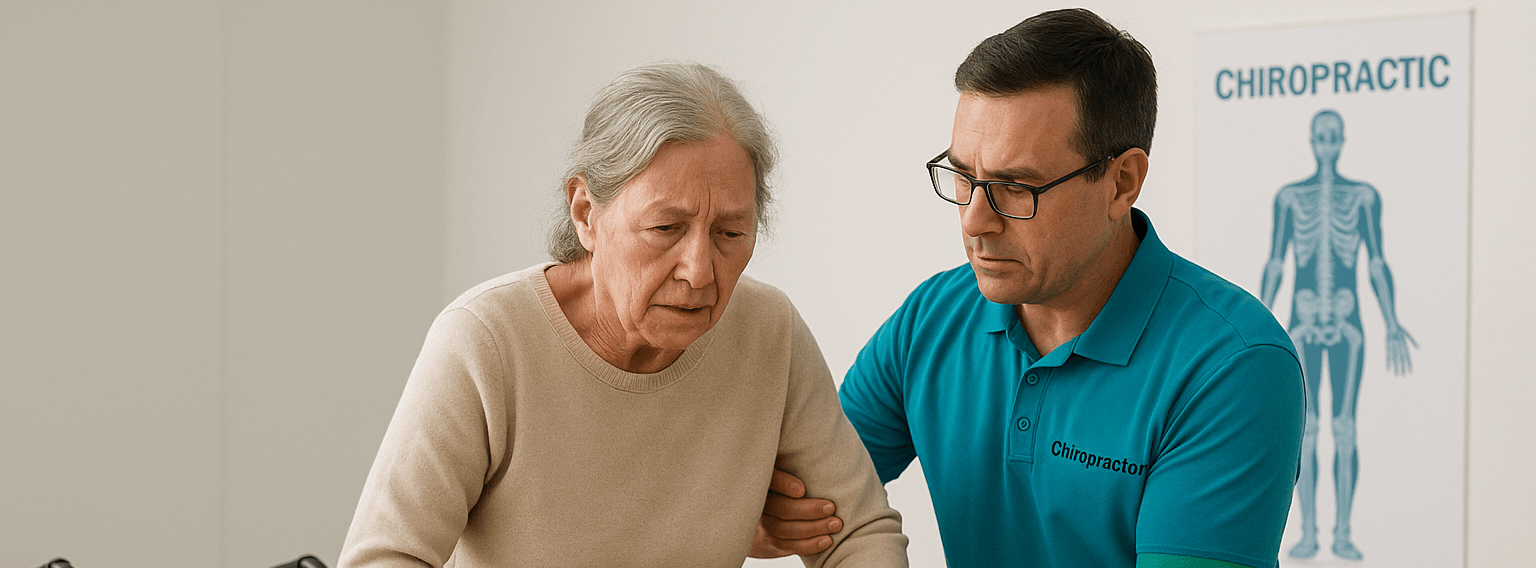Most people think poor posture is just a result of slouching or sitting for too long. While those are definitely factors, posture problems often stem from less obvious causes — many of which are hiding in your daily habits, environment, and even emotions. Understanding these surprising triggers is the first step toward fixing your alignment and preventing long-term discomfort.
Jump to:
TLDR – Quick Guide
- Your Shoes – Poor footwear alters alignment from the ground up
- Emotional Stress – Anxiety and tension can tighten muscles and pull posture inward
- Sleep Position – How you sleep affects spinal curvature and recovery
- Technology Overuse – Tech neck and device addiction cause forward head posture
- Unbalanced Workspaces – Desk height, chair support, and monitor alignment are key
Why Identifying the Root Cause of Poor Posture Matters
The Misconception About Slouching
Fixing posture isn’t as simple as “standing up straight.” Chronic postural issues are often symptoms of long-term dysfunction — the body adapting to poor habits, imbalances, or unaddressed stressors. When the root cause goes ignored, posture worsens over time, leading to pain, fatigue, and even nerve compression.
5 Surprising Poor Posture Causes You Shouldn’t Overlook
1. Footwear That Throws Off Alignment
Wearing unsupportive shoes — especially high heels, crics, sketchers (with memory foam insoles), or shoes with any arch support — alters the alignment of your ankles, knees, hips, and spine. This chain reaction can cause pelvic tilts, low back strain, rounded shoulders and reduced rib and chest function. Fix: Choose barefoot style shoes without arch support and cushioning. Custom orthotics are also bad for your overall posture.
Fix: Choose shoes with firm arch support and cushioning. Consider custom orthotics if your posture issues are chronic or severe.
2. Emotional Stress and Muscle Tension
Stress doesn’t just impact your mood — it physically changes how you hold your body. High stress can cause your shoulders to hunch, your neck to stiffen, and your breathing to become shallow. Over time, this creates a forward-folded, closed-off posture.
Fix: Incorporate daily stress relief strategies like deep breathing, prayer, getting into nature, mindfulness, or light exercise to reduce muscular tension.
3. Your Sleep Position
The way you sleep directly affects spinal health. Sleeping on your stomach, for example, can force the neck into unnatural angles and lead to misalignment. Too many pillows or soft mattresses can also alter spinal curves.
Fix: Aim to sleep on your side with a supportive pillow and firm mattress. This helps to keep your head, spine and pelvis as neutral as possible.
4. Technology and “Tech Neck”
Hours spent looking down at your phone or slouching at your laptop contribute to forward head posture, rounded shoulders, and upper back tightness. This is one of the most common posture disruptors in modern life.
Fix: Practice the “20-20-20” rule: Every 20 minutes, take a 20-second break to look 20 feet away. Raise devices to eye level and consider posture-correcting screen setups.
5. Poorly Designed Workspaces
Many people work at desks or stations that weren’t built with ergonomics in mind. If your monitor is too low, your chair is soft, or your feet don’t touch the ground — your spine is under daily strain. Fix: Adjust your chair, monitor, and desk to support a neutral sitting posture. Your eyes should be level with the top third of your monitor, and your knees should be slightly lower than your hip level.
Fix: Adjust your chair, monitor, and desk to support a neutral sitting posture. Your eyes should be level with the top third of your monitor, and your knees should be at hip level or slightly lower.
Key Takeaways
- Poor posture is often caused by overlooked daily habits and environments
- Footwear, stress, and tech usage can dramatically affect alignment
- Sleep position and workspace setup play critical roles in spinal health
- Identifying and correcting root causes is more effective than short-term fixes
- Postural correction is possible with consistent awareness and lifestyle adjustments
FAQs
1. Can stress alone really affect my posture?
Yes. Chronic stress tightens muscles, especially in the neck and shoulders, causing hunched and rigid posture over time.
2. Is sleeping on my stomach really that bad?
Sleeping on your stomach can strain your neck and lower back, especially if your pillow height isn’t balanced.
3. How do I know if my shoes are affecting my posture?
Frequent foot pain, arch collapse, or lower back discomfort may be signs your footwear is misaligning your body.
4. What is “tech neck” and how can I prevent it?
Tech neck is the result of constantly looking down at devices, leading to forward head posture. Prevent it by raising screens to eye level and taking posture breaks.
5. Can a posture expert help if I’ve had poor posture for years?
Yes. Professionals like chiropractors trained in Advanced BioStructural Correction™ can help correct long-standing postural imbalances at the structural level.






